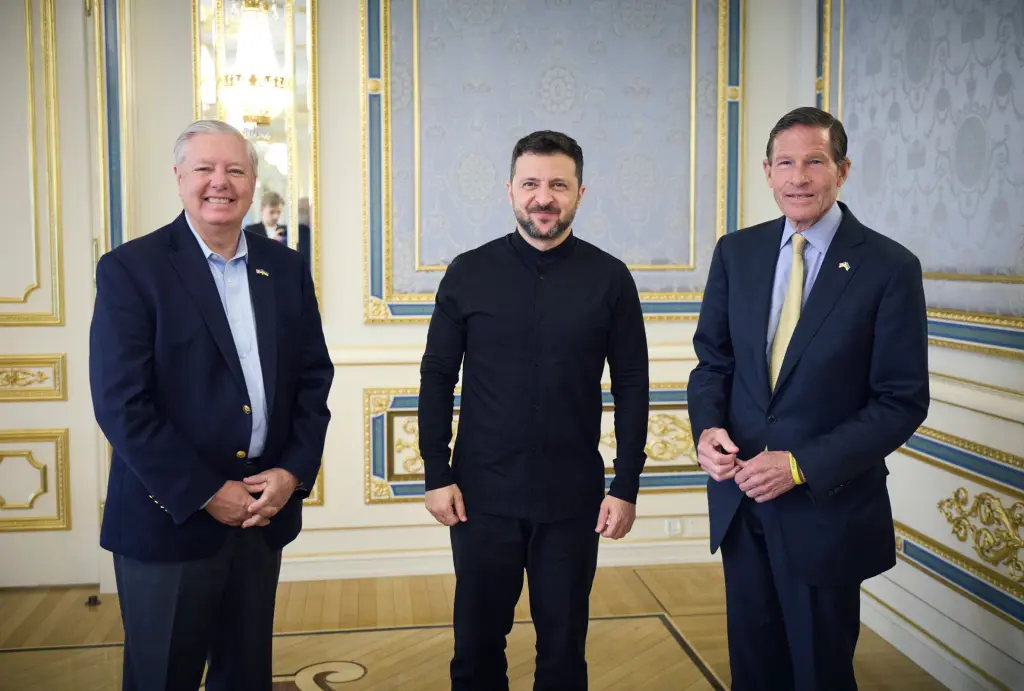Already a subscriber? Make sure to log into your account before viewing this content. You can access your account by hitting the “login” button on the top right corner. Still unable to see the content after signing in? Make sure your card on file is up-to-date.
Two top US lawmakers have met with Ukrainian President Volodymyr Zelensky in Kyiv to advocate for tougher sanctions against Russia amid stalled peace negotiations.
Some shit you should know before you read: If you’re unaware, a potential ceasefire agreement between Russia and Ukraine seems very unlikely as recent diplomatic efforts appear to be unraveling. The last round of peace talks, held in Turkey, involved delegations from both countries but notably excluded President Putin, an absence many interpret as a sign of the talks’ limited seriousness and diminishing prospects. Analysts and Western officials increasingly believe that Putin has little interest in ending the war, instead viewing the current battlefield momentum as an opportunity to seize more Ukrainian territory and consolidate control. While Ukraine has accepted a proposed 30-day unconditional ceasefire backed by the US, Russia has rejected the offer outright and continues its escalating air campaign. Over the last two weeks, both Russia and Ukraine have been ramping up attacks on each other, with Ukraine recently carrying out a massive drone attack from within Russia that reportedly damaged a significant amount of Russia’s strategic bombers. In turn, Russia has intensified its attacks on Ukraine, launching both drones and glide bombs into various parts of Ukraine.

What’s going on now: In a notable development, Senators Lindsey Graham (R-SC) and Richard Blumenthal (D-CT) traveled to Kyiv to meet with Ukrainian President Volodymyr Zelensky, stressing that there was bipartisan US support for Ukraine and promoting new sanctions legislation aimed at crippling Russia’s wartime economy.
The legislation, co-sponsored by both senators, has already gained support from at least 82 US senators across party lines. If passed, it would impose a 500% tariff on goods from countries importing Russian oil, gas, uranium, and other key exports, effectively targeting Russia’s remaining revenue streams.
However, the bill’s future may hinge on President Donald Trump, who has so far taken a cautious stance. While Trump has sharply criticized Putin—calling him “absolutely crazy” and accusing him of needlessly killing civilians—he has stopped short of endorsing the sanctions bill. Asked if he would support it, Trump said, “I don’t know, I’ll have to see it.” Still, with 82 senators publicly backing the legislation, it approaches the two-thirds supermajority required to override a potential presidential veto.
Despite this, Senator Graham says that he expects the Senate to start moving the sanctions bill next week. He added, “There are House members that are ready to move in the House, and you’ll see congressional action. President Trump said that the next two-week period will be outcome-determined.”







